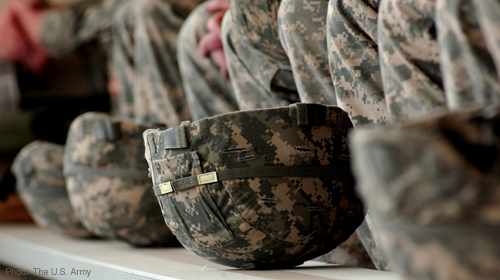
This piece originally appeared at .
Over the past couple of months, conservative commentators and some Republican members of Congress have been over reports that Army diversity trainings have labeled various religious and socially conservative organizations as "extremist" or "hate groups."
In response to some of that criticism, Army Secretary John McHugh recently suspended these trainings. The ACLU commended that move in a letter to the Army last week that dispels the perception left by some that the trainings were uniquely anti-Christian. The ACLU also urged the Army to better protect the First Amendment rights of military personnel going forward and offered suggestions on how to do so.
Here's the background. Starting back around April, reports began surfacing of Army training materials on "extremism" and "hate groups," which listed, for instance, evangelical Christianity and ultra-Orthodox Judaism alongside the KKK as examples of "religious extremism." The conservative press was quick to jump on the story and the Army was equally quick to say that the slide
Then, in October, there were further that trainers had again used inaccurate information, sourced from the internet, to label fully lawful and constitutionally protected advocacy groups as extremists, suggesting that donations to such groups and other support or participation could subject soldiers to military punishment. In response, the Army laudably halted these trainings to allow for the centralized creation and dissemination of an official curriculum.
Interestingly, this issue goes back almost 30 years. In the mid-1980s, then-Defense Secretary Caspar Weinberger issued a military directive banning "active participation" in "hate groups." The ACLU criticized that policy in a , noting that the military has ample authority to discipline soldiers actually engaged in wrongdoing, and defending service members' rights to associate with any lawful group they choose.
The ACLU reiterated that position in our letter last week and urged the Army to consult legal experts and a wider array of outside groups in formulating uniform diversity trainings -- formally called "Equal Opportunity" trainings -- addressing so-called "extremism." We asked the Army to consider three issues moving forward.
To continue reading:
Learn more about the first amendment and other civil liberty issues: Sign up for breaking news alerts, , and .


